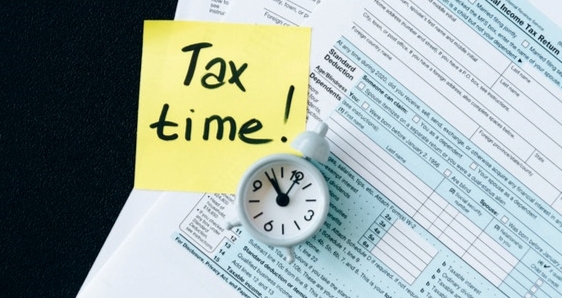With the end of the 2022 financial year approaching, we would like to draw your attention to some things worth considering as part of your year-end tax planning.
As always, we are here to assist you. If you have questions about any of the strategies mentioned in this article, or you would like to explore new opportunities that might be appropriate for your situation, please don’t hesitate to contact us. Also, please be mindful in relation to some of the following considerations that although announced, there are announcements that are yet to receive Royal Assent.
Things to consider:
- Pre-paying deductible expenses – if you have expenses that are tax deductible, consider paying them before 30 June in order to bring forward your tax deduction to the current financial year, this could include things such as office supplies, materials, subscriptions – cashflow permitting of course. The tax laws favour businesses over employees as generally there are more concessions, deductions available to businesses than there are for employees. For businesses, this is also dependent on whether you report on an accruals or cash basis.
- For eligible small business owners, consider the following:
- Temporary full expensing of business assets from 6 October 2020 until 30 June 2023:
- Eligibility has been expanded to cover businesses with turnover of less than $5 billion for new assets
- Eligibility has been expanded to cover businesses with turnover of less than $50 million for second-hand assets
- Assets include things such as plant & equipment, computer hardware, motor vehicles etc
- Please note the cap on luxury cars still remains as they are subject to the luxury car depreciation limit being $60,733 for the 2022 financial year
- Loss carry back provides a refundable tax offset that eligible corporate entities can continue to claim in their 2022 and 2023 company tax returns
- Review your fixed asset register against the physical assets of your business and write off any plant or equipment that is obsolete or no longer in use
- Consider your old receivables, are they recoverable? If not, write off your bad debts to obtain the tax deduction assuming you are reporting on an accruals basis for tax purposes
- Complete a stocktake at 30 June 2022
- Temporary full expensing of business assets from 6 October 2020 until 30 June 2023:
- Prepaid income – If deposits have been paid by customers for services yet to be performed or products yet to be delivered, there is a possibility these funds can be treated as prepaid income which would result in the income being deferred into the next financial year. This would assist in minimising the business taxable income for the 2022 financial year & as a result minimise the income tax liability.
- Planning to retire, or stop working? – if so, consider deferring your plans to stop working until early in the next financial year. Any lump sums you receive from your employer such as payments for accrued annual and long service leave will be taxed in the year they are received. If your taxable income is likely to drop in the 2023 financial year, deferring leaving work may result in a lower amount of tax being payable.
- Superannuation contributions – If you are going to make superannuation contributions, you need to firstly ensure you are eligible to do so & secondly in order for them to count in the current financial year they need to be deposited into your superfund account by 30 June 2022. Superannuation contributions are tax deductible in the financial year they are paid & receipted by the superfund. Ensure you adhere to the relevant contribution caps & ask us about the ‘’carry forward unused concessional contributions’’ that may be available to you.
- Low income earning spouse superannuation contribution – Claim the $540 rebate by making a superannuation contribution of up to $3,000 on behalf of your low-income earning spouse. Eligibility criteria needs to be met.
- Family/discretionary trusts – Make sure that any beneficiaries you intend on distributing profits to from your Trust are eligible under the Trust Deed & ensure you have your profit distribution resolutions in place by 30 June 2022.
- Investment properties – In majority of cases we find it is tax advantageous to obtain a depreciation report prepared by a quantity surveyor. Included within the depreciation report are depreciation calculations on the various depreciable assets as well as the building. Note also the depreciation calculations span across numerous financial years.
- Private health insurance – having your own private health insurance cover may deliver a number of benefits including:
- Being eligible to receive the private health insurance rebate;
- Avoiding the Medicare levy surcharge; and
- Avoiding the lifetime health cover loading if the insurance is not taken out before turning 30.
- Superannuation pensions – For those drawing a superannuation pension, you need to ensure the minimum pension is withdrawn from your superfund by 30 June 2022.
- Rent to your superfund – If your business is renting commercial premises from your own SMSF, ensure commercial rent is being paid & that the lease is up to date.
- Donations – if you intend on making any donations ensure they are paid by 30 June 2022 & generally the organisation needs to be a deductible gift recipient (DGR) in order for it to be 100% tax deductible.
- Company tax rate – A reminder the company tax rate for small businesses is currently 25%. Otherwise, it remains as 30% for those companies that are not classified as ‘’small businesses’’.
- Capital gains tax – If you have sold any real estate, cryptocurrency or shares that fall under the capital gains tax (CGT) provisions, note that the contract date is when the asset is considered to be sold for tax purposes not the settlement date.
- Other superannuation matters – There are a number of other measures in relation to superannuation such as the first home super saver scheme, $1.7mil general transfer balance cap, downsizer contributions etc. – contact us to discuss.
- Bookkeeping software – For those running bookkeeping software, ensure you review what you currently have in place and account for the impact ‘’single touch payroll’’ may have on you or your business. Ensure the software is up to date along with the relevant rates embedded within.
- Investment structures – Review your business structure and personal assets, and where your investments are held. Some structures are able to take advantage of reduced or capped tax rates. For example, a company structure is currently capped at a 25% tax rate, which can make a big difference if your investments are generating significant income.
- Home office – Especially due to Covid-19, ensure you monitor & keep record of the hours you are working from home which will be relevant when calculating your home office claim for the 2022 financial year.
- ATO cash flow boosts & government grants – It is vital for businesses to ensure they itemise these particular transactions as part of the bookkeeping process. Some of these items are treated as ‘’tax free’’, such as the cash flow boost & we want to avoid businesses being assessed on tax free income.
- Maintaining complete records – there is nothing more frustrating than not being able to find receipts and payment records when tax time arrives. Consider using an app or other web-based solutions for recording expenses and maintaining your vehicle log book.
This is a snapshot of the things you should be thinking about as you approach the end of the 2022 financial year. Remember, it’s important to get the right advice when you consider any of the above.
If you have questions about any of the issues raised, or simply to check in with us so that everything is on track, please don’t hesitate to contact our office on 03 9894 3449.





